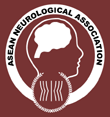
ASNA is an acronym for the ASEAN Neurological Association. ASEAN, in turn, is the abbreviation for the Association of South East Asian Nations. There are strong reasons for the neurologists in South East Asia to come together for networking and to form an association. There are now close to three thousand neurologists in South East Asia. There is a need for the neurology fraternity within the region to meet and communicate more frequently in order to learn from one another, to solve the common problems and together develop neurology in the region.
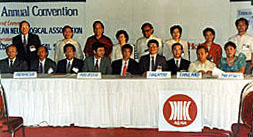
On the 17th of November, 1994, in the beautiful Laoag City, Ilocos Norte, Philippines, the ASEAN Neurological Association (ASNA) was inaugurated. ASNA membership presently consists of Brunei, Cambodia, Indonesia, Laos, Malaysia, Myanmar, Philippines, Singapore, Thailand and Vietnam, all the 10 nation states of ASEAN. Timor Leste joined as the 11th member of ASNA in 2023.
The first biennial scientific meeting was successfully held in Manila in December, 1995. Since then, there has been biennial convention every two years in one of the South East Asian cities, Singapore (1997), Chiangmai (1999), Kuala Lumpur (2001), Cebu (2003), Jakarta (2005), Cha-Am (2007), Kuala Lumpur (2009), Bali (2011), Bandar Sri Begawan (2013), Singapore (2015), Manila (2017), Yangon (2019), Bangkok (2021), and Danang (2023).
Other than the biennial convention, other ASNA activities are:
- Neurology Asia (formerly known as the Neurological Journal of South East Asia), which is also the official journal for ASNA, and also the Asian & Oceanian Association of Neurology (AOAN) and Asian & Oceanian Child Neurology Association (AOCNA). Neurology Asia has published regularly for the last 23 years
- Joint Asian Epilepsy Academy (ASEPA)-ASNA EEG certification examination
- Workshops and symposiums on various specialty themes, visiting professorship, and exchange fellowship
- Subspecialty chapters such as stroke and CNS infection, to facilitate joint research and training
- ASNA Life Time Achievement Award and Outstanding Contribution Award
The office bearers of ASNA are as follows:
For a long time, many must have thought about having an ASEAN based neurological association. There are already many successful examples of ASEAN professional groupings among other specialties, such as surgery, orthopaedics, mental health, endocrinology and gastroenterology. The needs for similar organization in neurology seem obvious.
Good international meetings such as American Academy of Neurology annual meeting and even AOCN meeting is very expensive to attend. Yet these meetings are very helpful in keeping our skill sharpened and in stimulating our young colleagues in their career development. If neurological associations within ASEAN could pool the resources and jointly organize similar meetings, the number of people who could benefit from these meetings will increase many folds. This indeed will be good for the development of Neurology for this region.
Furthermore, looking long term, as ASEAN develops economically; the clinical practice and research in neurology will also improve. The day will come when neurologists in ASEAN may want to learn from each other within the region as much as they would like to learn from the traditional source in the West. A regional professional organization can thus play a key role in facilitating this exchange. Indeed one can foresee the day when there are regional workshop on various aspects of neurology, exchange fellowship, various research groups, and even regional neurological journal.
The relaxed and friendly atmosphere in the Second International Sumatriptan Symposium in the winter resort of Whistler in Canada after the 15th World Congress of Neurology in Vancouver provide an excellent opportunity for some of the officials of the individual ASEAN neurological associations to discuss this idea. An informal meeting was thus called on September 11, 1993. Present was Dr TG Loh, Dr Abdias Aquino, Dr CB Tan, presidents of the neurological associations of Malaysia, Philippine and Singapore respectively. Also present were Prof. CT Tan and Dr MK Lee from Malaysia, Dr Adulya Viriyavejakul from Thailand. The basic concept of forming a regional neurological association was agreed upon. The Malaysians volunteered to work on the constitution and contact the Indonesians. Each individual present were asked to convey the ideas to their respective associations. It was also decided that the matter could be discussed further in the First AOCN Neuro-epidemiology meeting to be held in Taipei four months later.
A second meeting was thus held on January 9, 1994 in Taipei. Present were Prof. Benjamin Chandra from Indonesia, Dr Abdias Aquino and Dr Mayvelyn Gose from Philippine, Prof. Niphon Pongvarin from Thailand, Dr K. Puvanendran from Singapore and Prof. CT Tan from Malaysia. The name ASEAN Neurological Association (ASNA) was agreed upon. A simple constitution was adopted. It was proposed that the initial activity should be a biennial scientific congress, the first such congress should be in 1995. Prof. CT Tan was to coordinate the affairs of the ASNA until her official formation.
A month later, Dr Mayvelyn Gose, President of the Philippine Neurological Association proposed to inaugurate the ASNA in the Philippine Neurological Association’s annual convention in November 1994 with the first official council meeting. Thus, begins the official journey for ASNA.
(The above was written by Prof. CT Tan, entitled “The Saga of ASEAN Neurological Association – ASNA”, for the occasion of the inauguration of the ASNA during the 16th Annual Convention of the Philippine Neurological Association in Laoag City, Philippine, on November 17, 1994)
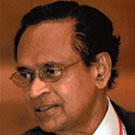 |
2013 -- K. Puvanendran, Singapore |
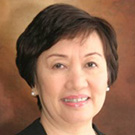 |
2015 -- Lillian Lee, Philippines |
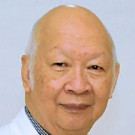 |
2021 -- Dede Gunawan, Indonesia |
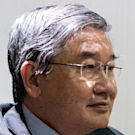 |
2023 -- Chong Tin Tan, Malaysia |
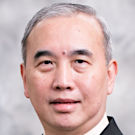 |
2023 -- Shih Hui Lim, Singapore |
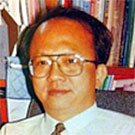 |
Prida Phuapradit (1947 – 1998) Professor Prida Phuapradit was born and grew up in Bangkok, Thailand. He graduated from the Faculty of Medicine, Ramathibodi Hospital, Mahidol University and had Neurology residency training at the same Hospital. Subsequently, he was awarded the Ananda Mahidol Foundation Scholarship under Royal Patronage to continue his study in U.K. He worked as a registrar at the Hammersmith Hospital in London, and the Radcliffe Infirmary and Churchill Hospital in Oxford. On returning to Thailand in 1980, Dr. Phuapradit was appointed Consultant Neurologist at Ramathibodi Hospital where he soon became the Head, Division of Neurology. He was appointed Professor in 1990. Prof. Phuapradit was a keen academician and researcher. His research interest was in bacterial meningitis, particularly treatment of tuberculous meningitis. He was also the Editor of the Ramathibodi Medical Journal and Vice-President of the Neurological Society of Thailand. Prof. Phuapradit was an excellent teacher and clinician, who was very kind, attentive and dedicated to his students and patients. To many of his seniors, friends and colleagues, he was brilliant and knowledgeable. He was particularly proud of being awarded the Ananda Mahidol Foundation Scholarship; and having good teachers in Professor Athasit Vejjajiva and Professor W.B. Matthews of the U.K. He was elected as Fellow of the Royal College of Physicians of London in 1990. His other interests included raising dogs and dog shows. He had served as the President of the Kennel Club of Thailand. He died in a road traffic accident at the age of 51. He is survived by his beloved wife, one son and one daughter. (by Rawiphan Witoonpanich) |
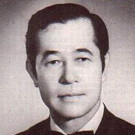 |
Gilberto L. Gamez (1922 - 2001) Dr. Gilberto Gamez was born on February 27, 1922 in Lal-lo, Cagayan. He lost his lawyer father at the tender age of four and was raised by his mother and elder brother. He lived a very simple and frugal life. He graduated valedictorian in both elementary and high school at the Cagayan Valley Institute in Aparri. In 1938, he was introduced to Father Eugenio Jordan, O.P., who was then the Rector Magnificus of the University of Santo Tomas. He served as “famulo”, Latin for servant, to the Dominican priests while taking up Liberal Arts in UST. He graduated summa cum laude with a degree of Bachelor of Arts in 1943 at the height of the Japanese occupation. He wanted to further take up law but the Japanese imperial army closed schools for law at the time. Fr. Angel de Blas, who was then Dean of the College of Liberal Arts in UST, advised the young Gilberto to take up Medicine instead. He did, and concurrently taught in liberal arts. During this time, he was likewise a member of the editorial board of the Varsitarian. He later took his internship at the Santo Tomas University Hospital where he was voted as the most outstanding intern in his time. (read more...) |
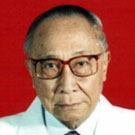 |
Mahar Mardjono (1923 - 2002) Professor Mardjono was born on 8th January 1923 in Semarang, Central Java. He went to medical school in Jakarta in the early forties. Due to interruptions from the Second World War, the Japanese Occupation and War of Independence against the Dutch, he graduated as a medical doctor only in l952. (read more...) |
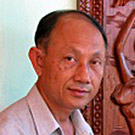 |
Vongphachanh Fongsouvanh (1951 - 2005) Dr. Vongphachanh Fongsouvanh was born in the Champasack province at the southern part of Laos in 1951. He graduated in Medicine from the University of Health Science in Laos in 1979. He subsequently completed 5 years training in Clinical Neurology in the Soviet Union in 1986. Upon returning from the Soviet till his death on 7 August 2005, Dr Vongphachanh was the first and only trained Neurologist in the country. Dr. Vongphachanh has also served as the Head of Internal Medicine Department in the Mitthaphab Hospital, Vientiane and Head of Internal Medicine and Paediatric Department in the Sethathilath Hospital, Vientiane from 2000 to 2005. (by Saysavath Keosodsay) |
 |
Woon Chee Yee (1946 - 2011) Dr. Woon Chee Yee was born in 1946 in Ipoh, Malaysia. His father had a furniture shop in Ipoh, and passed away when Dr Yee was 4 years old. He was thus brought up by the mother with his younger brother. He studied in the Anglo-Chinese School in Ipoh before admission to the University of Malaya, Kuala Lumpur where he graduated in 1971. After a year as a houseman in the Johore Bahru General Hospital, Malaysia and a further two years as a medical officer in the University Hospital Kuala Lumpur, he moved to United Kingdom through the WHO Academic Staff Training Scholarship, where he spent one year as an Honorary Registrar in the Department of Neurology at the Royal Victoria Infi rmary, Newcastle upon Tyne. (read more...) |
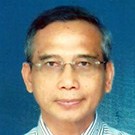 |
Mohd Rani Bin Jusoh (1951 - 2012) Dato’ Dr. Mohd Rani Bin Jusoh grew up in Trengganu. He went to Sekolah Sultan Sulaiman, Kuala Terengganu and was head boy of the school for the year 1968. He was a graduate in MBBS from the University of Malaya, and had MRCP (UK) certification in Internal Medicine in 1980. His training in Neurology included fellowships in the Newcastle General Hospital, England and Toranomon Hospital, Tokyo, Japan. He was a lecturer in Neurology and Internal Medicine in the National University of Malaysia from 1981 to 1985. After that, he became the Head of the Neurology Department, Hospital Kuala Lumpur from 1986 to 2001, as well as the Head of the Neurology service, Ministry of Health, Malaysia. As Head in this formative period of Malaysian Neurology development, he helped to train a number of Neurologists; spread the Clinical Neurophysiology service to many of the state hospitals, and chaired the consensus guidelines on brain death and stroke. He was also Secretary of the Neurosciences Foundation of Malaysia; a committee member (2006-2008) of the Malaysian Society of Neurosciences, and Founding President of the patient based Epilepsy Society of Malaysia. After leaving the government service in 2001, he practiced Neurology in the Ampang Puteri Specialist Hospital, and was its Medical Director from 2004. He was awarded FRCP (Ireland) and FRCP (Edinburgh); and honoured with “Dato” by the Sultan of Trengganu. Dr. Rani has 3 sons and one daughter. (by Kheng Seang Lim) |
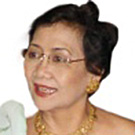 |
Mayvelyn D. Gose (1944 - 2015) Dr. Gose was one of the founding members of ASNA. She was a nurse and mother of 4 children when she took up medicine. She thencompleted the training in neurology in the University of Philippine-Philippine General Hospital, demonstrating her strong motivation and persistence. Dr Gose was Professor, University of Philippine College of Medicine, and has held the position of the Vice Chancellor of Administration, University of Philippine. She was also Neurologist in the St. Luke Medical Centre. She was President, Pain Society of the Philippines, 2003 – 2005, President, Movement Disorder Society of the Philippines, 1998 – 2006, and President, Philippine Neurological Association (PNA), 1994. As President of the PNA, she initiated and organized the inauguration of ASNA during the 16th Annual Convention of the PNA in Laoag City, Philippine, in November 1994, thus began the official journey of ASNA. |
